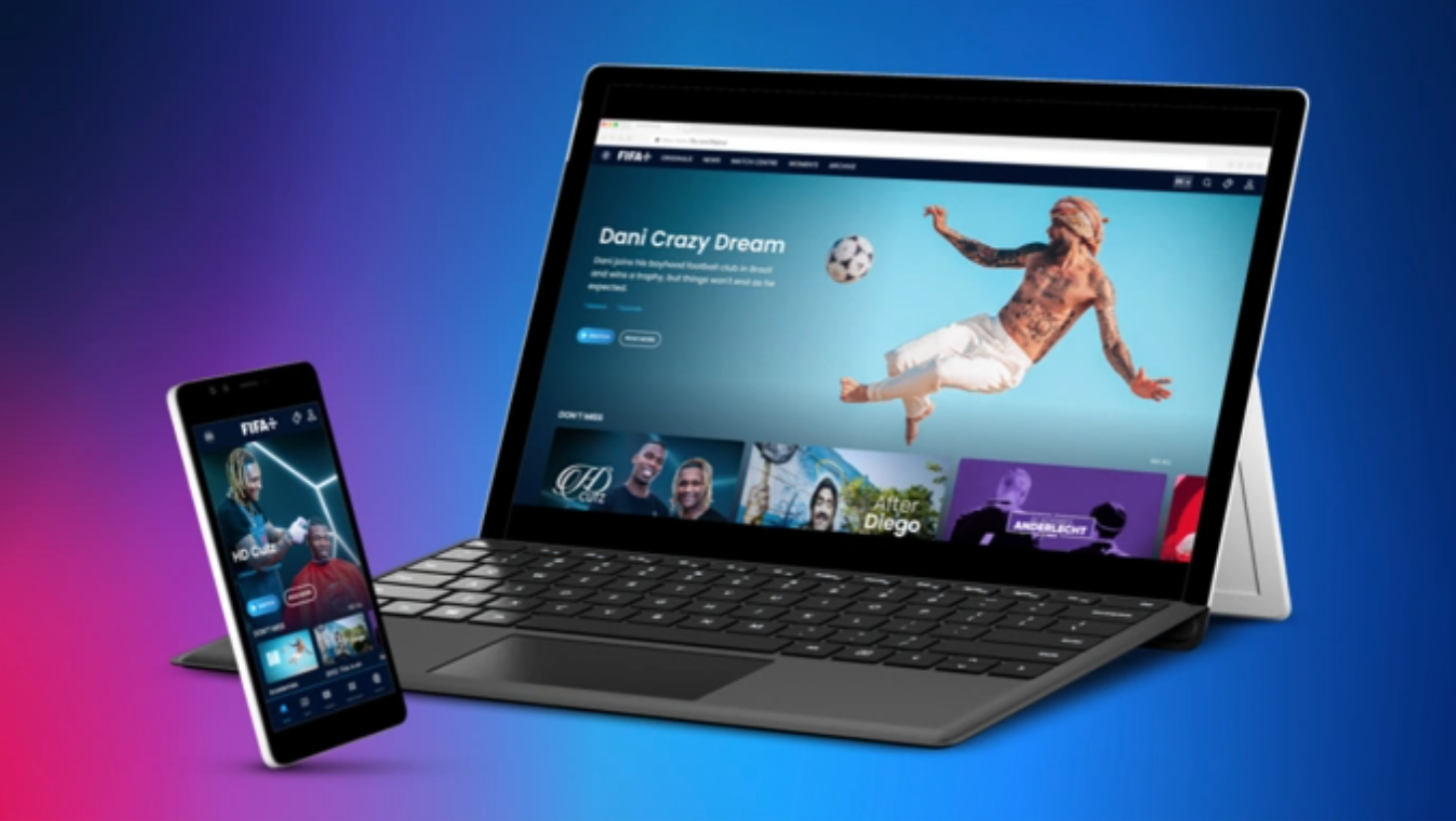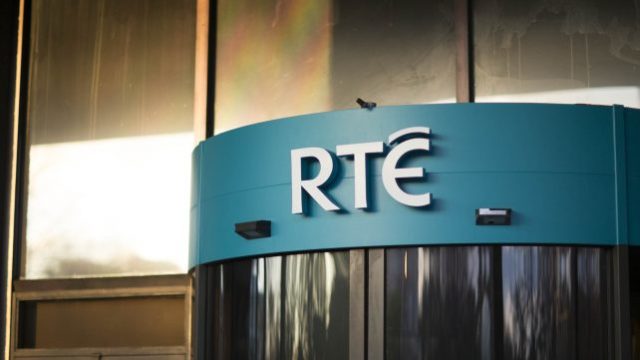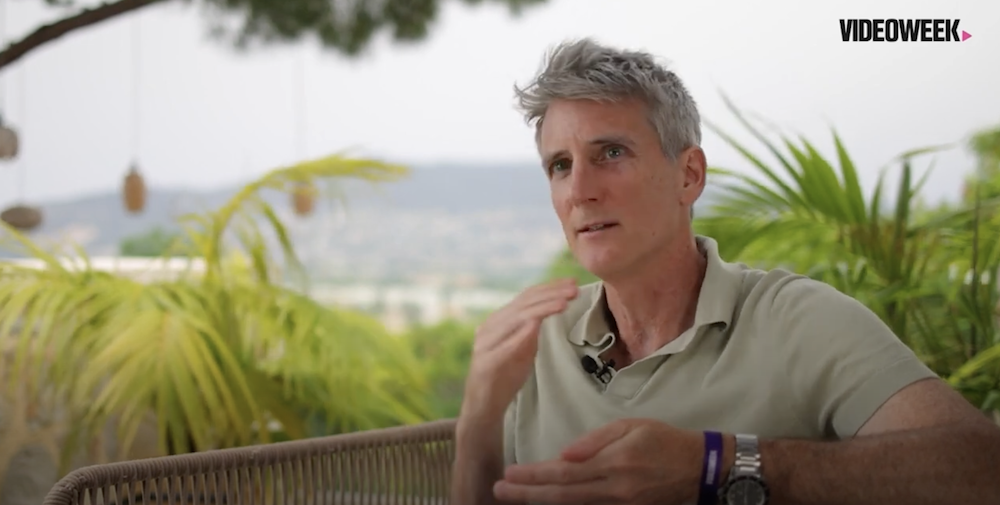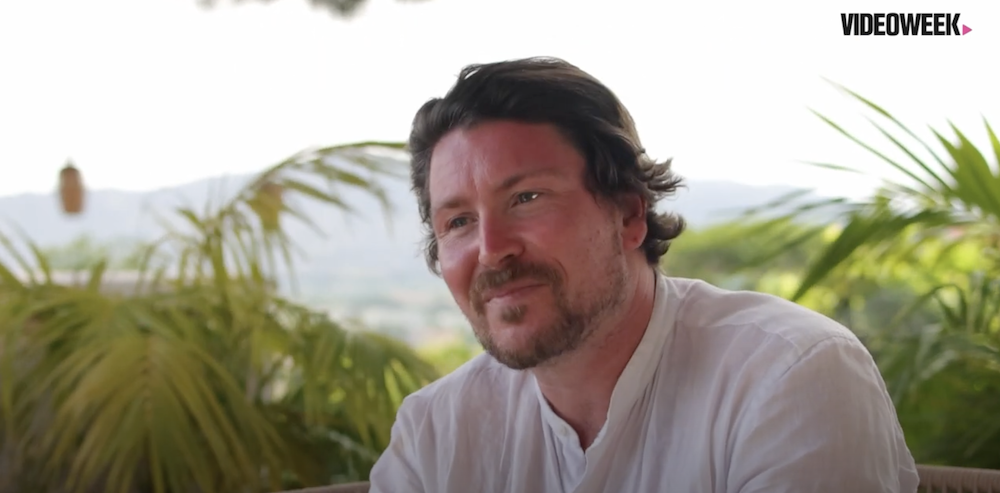In this week’s Week in Review: FIFA seeks new investment for its streaming service, GroupM and Tesco sign a landmark retail media deal, and the UN asks tech companies to move away from programmatic advertising.
Top Stories
FIFA Seeks $2 Billion Investment in FIFA+
FIFA is seeking to raise up to $2 billion to expand its streaming service FIFA+, Bloomberg reported on Thursday. According to sources familiar with the matter, FIFA is working with UBS Group AG to raise $1-2 billion, with a formal fundraising process expected to kick off in July. The organisation is mainly targeting financial investors from the US and the Middle East to take a minority stake in FIFA+.
The ad-supported streaming service was launched in April 2022 and offers live streaming in smaller broadcast markets – last year for instance, the service streamed the Women’s World Cup in countries where the TV rights had not been sold. It also has a selection of on-demand content such as archive footage of old games and football documentaries.
Rights vary significantly by market, and FIFA+ hasn’t yet made a play to bring any of its most valuable rights in-house. But the new funding round signal’s FIFA’s commitment to its streaming product, and could set up a push to stream bigger games in larger markets, establishing a more serious direct-to-consumer proposition.
GroupM and Tesco Sign Major Retail Media Deal
WPP’s media arm GroupM this week announced it has signed a major new retail media deal with Tesco Media and Insights Platform, which will see the two work together on data-led solutions, education, and innovation around retail media in the UL market.
The deal covers on-site, off-site, and ‘connected store’ offerings, giving GroupM access to insights and planning tools provided by Tesco. The two will also work together to improve implementational planning and define bespoke audiences, and GroupM will get first access to new products, while providing direct feedback on ad propositions developed by Tesco.
Retail media is a major growth area being targeted by all of the agency holding groups at the moment. GroupM will hope that this deal, and the privileged access it grants to certain tools and new products within Tesco’s retail media offering, will be a point of differentiation in the UK market. “The unique attributes of the Tesco Media and Insight Platform gives us, and our clients, the opportunity to truly explore the full gamut of opportunities offered by retail media and puts us at the forefront of initiatives to drive further innovation in this area,” said Luke Bozeat, chief operating officer at GroupM UK. “We look forward to a long and mutually successful collaboration.”
UN Calls on Tech Firms to Move Away from Programmatic Advertising
The United Nations has announced key recommendations to curb misinformation, disinformation and hate speech, and its proliferation by the means of AI. Speaking at the launch of the UN Global Principles for Information Integrity, Secretary-General António Guterres called on governments, advertisers and tech companies to make information spaces safer and more humane.
The proposals say that governments, tech companies, advertisers, media and other stakeholders should refrain from using, supporting or amplifying disinformation and hate speech for any purpose. Meanwhile tech companies should scope business models that do not rely on programmatic advertising and do not prioritise engagement above human rights. And stakeholders in AI technologies should take urgent and transparent measures to ensure that all AI applications are designed, deployed and used safely.
“The United Nations Global Principles for Information Integrity aim to empower people to demand their rights,” said Guterres. “At a time when billions of people are exposed to false narratives, distortions and lies, these principles lay out a clear path forward, firmly rooted in human rights, including the rights to freedom of expression and opinion.”
The Week in Tech
Freely Expands Smart TV Lineup with Toshiba, Sharp and Panasonic
Freely, the collaborative streaming service from the UK broadcasters, has announced partnerships with four more major smart TV manufacturers, making the connected TV app available on new Toshiba, Sharp, Panasonic and Metz models. Freely launched at the end of April on Hisense TVs, before adding Bush to its smart TV roster last month. The latest additions expand the lineup to a total of six smart TV partners. The new Freely-compatible models are:
- Toshiba QLED 4K TVs with Dolby Atmos sound
- Sharp GK4 4K and GM6 4K QLED models
- Panasonic 2024 OLED, QLED, and LED TVs
- Metz QLED+ TVs with Dolby Vision and Atmos, available in 43-, 50-, 55- and 65-inch screen sizes
The Trade Desk Demonetises Yahoo Video Inventory
Demand-side platform (DSP) The Trade Desk has followed through on its threat to shut off access to Yahoo video inventory, the company told AdExchanger on Monday. The DSP accused Yahoo of mislabelling video inventory as in-stream units, which tend to fetch higher prices. “After informing clients we would be blocking incorrectly declared inventory, we have been working with Yahoo and expect resolution soon,” said a spokesperson for The Trade Desk.
Marketers Less Prepared for Cookie Deprecation Than Two Years Ago
Around 60 percent of marketers feel ready for third-party cookie deprecation, according to an Adobe survey, down from 78 percent in 2022. The research also found that 49 percent of marketing strategies still rely on cookies. Third-party cookies were meant to be removed from Chrome this year, but in April Google pushed the deadline again to 2025.
Meta Asked to Delay Using Facebook and Instagram Posts to Train AI
The Irish Data Protection Commission (DPC) has asked Meta to pause plans that would see the social media giant use Facebook and Instagram posts to train its AI model. The company faced 11 legal challenges in Europe, with Noyb – European Center for Digital Rights saying the move would “override the fundamental right to data protection and privacy of European users”. The DPC requested that Meta delays training the large language models. Meta sources said the tech firm hopes the delay will be resolved over the summer.
Yahoo Adds Comscore, iSpot and Samba TV for CTV Measurement
Yahoo announced partnerships with Comscore, iSpot and Samba TV, providing CTV measurement options for its DSP customers. The company also has existing partnerships with Vizio Inscape, DIRECTV and VideoAmp. “The importance of transparency and accuracy in advertising measurement can not be understated, especially within CTV environments,” said Adam Roodman, SVP of Product Strategy and Management at Yahoo. “By partnering with industry leaders we are empowering our clients with the tools they need to more effectively and efficiently measure and optimise their CTV campaigns. These partnerships reflect our commitment to innovation and excellence in ad measurement across all channels.”
TikTok Criticised for “Creepy” AI Avatars
TikTok has faced criticism after showcasing AI-generated avatars, which are designed for advertisers to sell their products on the short-form video app. The company shared an example digital avatar based on TikTok exec Adrienne Lahens. Reports called the highly realistic avatar “creepy” and the AI-generated Japanese translation “a load of gibberish”. Commentators expressed concern that TikTok could find its “For You” pages flooded with AI bots.
French Competition Watchdog Calls for “Vigilance” in Generative AI Sector
France’s competition watchdog, l’Autorité de la Concurrence, has issued an opinion on competition within the generative AI sector. The report highlighted barriers to entry in the gen AI space, including the scale of data and investments required to train AI models, alongside potential risks, such as price fixing for computer components. “The authorities responsible for regulating competitive markets will have to remain vigilant in the generative AI sector and, if necessary, mobilise all the tools at their disposal to act quickly and effectively,” said the report.
The Week in TV
Media Execs Warn That Disney Rollbacks Threaten Pricing Efforts
Disney has committed to significant “rollbacks” in upfront deals, Variety reported this week, agreeing to 10-15 percent discounts on CPMs for advertisers on Disney+. Sources said rival media companies have been forced to drop their own prices in order to match Disney’s offer. Upfront demand has reportedly been lowered by the shift to streaming, where there is less pressure to make long-term commitments, while the introduction of ads on Amazon Prime Video has significantly increased the volume of supply. Executives expressed concern that rollbacks could undermine efforts to gain better pricing in an uncertain future for TV/streaming companies.
Paramount Tells Staff it Needs to “Act Now” to Stem Losses
Paramount Global’s leadership addressed employees at a Town Hall on Tuesday, noting that Paramount profits have declined 61 percent since 2018. “Let me be clear, a 61 percent decline in profits is simply unacceptable,” said Paramount co-CEO Chris McCarthy. “We need to act now to reverse this trend.” The company is seeking $500 million in annual cost savings, but has yet to specify the extent of job cuts. The firm has also hired bankers who will look to sell Paramount assets, and has additionally upped the price of its streaming service Paramount+. “We are advancing talks with potential partners that will significantly transform the scale and economics of the service making it profitable and driving long-term value,” added McCarthy.
Upfront Linear TV Spending in Decline
Upfront linear TV ad spending is falling in tandem with total linear TV spending, according to eMarketer, with upfront CPMs also showing signs of decline. The research found that upfront linear TV spend peaked in 2022, and the decline “shows no signs of reversing.” The study also predicted the upfronts will “outlive” linear TV. “Even though advertisers can now use advanced technology to purchase inventory right before their ads run and target specific groups of people, the seemingly archaic practice of upfront buying remains strong,” said the report. “Video streaming services, podcasts, video games, and retail media networks all sell inventory upfront.”
RTÉ Aims to Rebuild Streaming Products and Public Trust
RTÉ, Ireland’s public service broadcaster (PSB), has published a new five-year plan, designed to position the broadcaster as a streaming destination, while rebuilding trust in the organisation following last year’s secret payment scandal. The “New Direction” strategy echoes moves by other European broadcasters, such as Channel 4 in the UK and TF1 in France, to make streaming operations the core of their businesses. In the case of RTÉ, that means upgrading its digital products, including the RTÉ Player BVOD service. Read more on VideoWeek.
Ligue 1 Lays Out Plans for D2C Channel
France’s football governing body, the Ligue de Football Professionnel (LFP), has proposed plans for its own Ligue 1 channel, having failed to secure a buyer for the league’s TV rights. The channel will cost €30 per month, the LFP told its board of directors, aiming to bring two million subscribers for target revenue over €518 million, with €10 million additional advertising income. The proposal projects three million subscribers in five years, plus €18 million ad revenues, for a total €718 million. The LFP was reportedly seeking €800 per season in its abandoned auction.
Channel 4 Outpaces UK Broadcaster Viewing According to Barb Data
Channel 4 viewing has increased 2.5 percent YoY during the first six months of 2024, according to Barb data, compared with the other major UK broadcasters (including BBC and ITV) posting an average 3 percent YoY drop in overall viewing minutes. The growth is driven by Channel 4 streaming, the broadcaster said, with BVOD viewing climbing 32 percent YoY. The company added that around 40 percent of Channel 4’s 16-34 viewing this year has come via streaming, putting the broadcaster on track in its mission to become a public service streamer. “It’s great to see Channel 4’s long-term strategy of prioritising digital viewing and investing in distinctive, British streaming-first content bearing fruit,” said Ian Katz, Chief Content Officer at Channel 4. “This data shows that, even in a challenging market, we can successfully grow our overall audience by attracting new digital natives and migrating existing viewers to digital platforms.”
Disney Announces Global Roll-Out of Audience Graph and Clean Room
In preparation for Disney+ launching its ad-supported tier in Latin America, Disney has rolled out its suite of audience solutions to the global market. The suite includes Disney’s Audience Graph, Bridge ID solution, and Clean Room technology, granting global advertisers access to the audience tools. “For the first time, since scaling our offering to thousands of advertisers in the US, we have expanded Disney’s Audience Graph and Clean Room technology to a global region beginning with Latin America, for more precise and performance-driven planning, buying and measurement,” said Dana McGraw, SVP of Data and Measurement Science at Disney.
NFL Ordered to Pay $4.7 Billion to TV Customers in Antitrust Lawsuit
The National Football League (NFL) has been ordered to pay $4.7 billion in damages to TV customers who bought the company’s Sunday Ticket package. Subscribers brought the federal class-action lawsuit in California, alleging anticompetitive conduct, as they had to buy the Sunday Ticket package in order to watch games outside their home markets. The NFL called the claims “baseless and without merit”, announcing it would contest the verdict.
The Week for Publishers
AI Companies Bypass Publishers’ Efforts to Stop Scraping
Multiple AI companies are bypassing web standards commonly used by publishers to prevent businesses from scraping their web pages for data to train their models, Reuters reported this week. Content licensing tool TollBit has warned publishers about the practice, though it has not publicly named which AI businesses are circumventing the standard. AI search company Perplexity has been openly accused of bypassing the same standard by Forbes.
Immediate Launches New Ad Tools for Opted-Out Users
Publishing group Immediate, which runs titles including the Radio Times, Good Food, and BBC Gardeners’ World, has launched new ad tools to reach opted-out audiences in partnership with Opt Out Advertising. “Our partnership with Opt Out Advertising marks a significant milestone in our evolution, providing advertisers with another way to connect with even more consumers in our market-leading, deeply trusted, brand safe and highly contextual environments,” said Cath Waller, Immediate’s MD of advertising. “By integrating Opt Out Advertising’s technology across our diverse range of titles, we reaffirm our commitment to innovation and privacy in ad delivery.”
RedBird IMI Puts The Telegraph Up for Auction Again
RedBird IMI has begun a second attempt to auction off The Telegraph and related media assets, including The Spectator, the Financial Times reported this week. RedBird IMI bought the media group’s debt after its assets were seized by Lloyds Banking Group due to unpaid debts of over £1 billion. But the UK government blocked an effort by RedBird to take full ownership of the publisher, meaning it is now looking to recoup its money spent. RedBird wants first round bids by the end of July, according to the FT.
Top News Sites Saw Growing Traffic in May
None of the world’s top ten news websites saw month-on-month falls in traffic in May, according to Press Gazette’s analysis of Similarweb data, with all but two seeing growth. The BBC saw the largest month-on-month growth, up nine percent, while Fox News was up eight percent and the New York Times was up four percent. Year-on-year the picture was more mixed: half of the world’s top ten websites saw traffic growth, while half saw declines.
Meta Confirms Potential News Block in Australia
Meta confirmed in front of an Australian parliamentary committee that it’s considering blocking news on its platforms in the country, in response to laws forcing tech companies to negotiate payments with news publishers. The laws have been in force for several years, and Meta has so far complied. But with initial deals with publishers set to expire, Meta now seemingly plans to pay hardball, claiming that it doesn’t get much value from hosting news content anyway. If forced to pay for news by the Australian government, Meta says it may instead simply block news, thereby avoiding the need to pay.
Stagwell CEO Calls for Greater Advertiser Support for Journalism
Mark Penn, CEO of marketing group Stagwell, has called for advertisers to do more to support journalism, stating that news journalism shouldn’t be seen as a risk by advertisers. Speaking at Cannes last week, Penn said that in Stagwell’s experience, advertising alongside news content doesn’t doesn’t hurt brands, and can have advantages in terms of pricing.
The Week for Brands & Agencies
IPG Mulls Sale of R/GA
Interpublic Group is reportedly considering offloading digital agency R/GA to Indian company Tata Consultancy Services, which is looking to expand its marketing offering, the Wall Street Journal reported this week. TCS isn’t believed to be the only company in the running for the agency, which is reportedly valued at around $300 million.
Omnicom and GroupM Compete for Amazon’s Media Account
Omnicom and GroupM are the last two agencies competing for Amazon’s global media planning and buying account which is currently under review, B&T reported this week, with incumbent IPG Mediabrands reportedly out of the running. Amazon is one of the world’s biggest spenders on advertising, and B&T reports its media account as the most valuable in the world.
General Motors Shakes Up Agency Roster
US car giant General Motors has shaken up its agency roster, moving away from its agency of record model to work with a bigger number of smaller agencies. Anomaly, 72andSunny, Mother, and Preacher have all been appointed on the creative side, according to More About Advertising, while Media.Monks, Omnicom Precision Marketing, and Carat will work on content, CRM, and media respectively.
Toys ‘R’ Us Demos AI-Made Brand Film
Toys ‘R’ Us, the once-major toy retailer which now sells goods through third-party stores, has unveiled a brand film created entirely using OpenAI’s text-to-video tool Sora. The film was released by the brand on its YouTube channel and its website, but Toys ‘R’ Us isn’t believed to be planning an ad campaign using the film. Toys ‘R’ Us claims the video is the first brand film created entirely using Sora.
WPP in Talks to Sell Majority Stake in FGS Global
WPP is reportedly in talks to sell a majority stake in FGS Global, its strategic advisory and communications consultancy business, to private equity firm KKR. KKR bought a roughly 30 percent stake in the firm a few years back, in a deal which valued FGS Global at $1.4 billion. The Financial Times reported that KKR’s initial offer was rejected as too low by WPP, but that talks are likely to pick back up.
IPA and ISBA Add Productions Sustainability Clause to Creative Service Framework Agreement
Industry trade groups the IPA and ISBA have added a new clause into their industry standard Creative Services Framework Agreement which reminds advertisers and agencies of their responsibility to work together to reduce carbon emissions from ad production. The agreement includes guidance on how to reach carbon reduction goals within ad production.
Adidas ‘Hey Jude’ Ad Named Most Emotionally Engaging Euro 2024 Spot
Adidas’s ‘Hey Jude’ ad has been found by creative effectiveness platform DAIVID to be the most emotionally engaging Euro 2024 ad, with 52.8 percent of viewers feeling intense positive emotions in response. Tennent’s ‘Get to Germany’ and Budweiser’s ‘Bring It Home’ took second and third place.
Hires of the Week
ITV Appoints Roku’s Stefan Hoejmose as AI Lead
ITV has appointed Stefan Hoejmose as Group Chief Data and AI Officer. Starting on 8th July, Hoejmose will lead the broadcaster’s data strategy and AI innovation. He previously led the Data Science and Machine Learning team at US TV business Roku.
Wavemaker Names McDonald’s Exec Alycia Mason as CEO
Wavemaker, a GroupM agency, has hired Alycia Mason as CEO. Mason spent over five years as a marketing executive at McDonald’s, experience that Wavemaker says will enable the agency to woo new clients.
Reach’s Mantis Announces Fiona Salmon as MD
Mantis, the Reach-owned brand safety and contextual company, has announced Fiona Salmon as Managing Director. Starting her role on 17th June, Salmon will oversee growth across the UK and Europe. She joins from search intelligence Captify, where she served as Global VP of Partnerships and Sustainability Lead.
This Week on VideoWeek
Freely Expands Smart TV Lineup with Toshiba, Sharp and Panasonic
Sir Martin Sorrell: Why Trump Will Win
TV Provides Premium Environments for Retail Media
Retail Media Should Sit “Full-Funnel in the Buying Proposition”
Advertisers Are Struggling with Fragmentation in Retail Media
“As Long as Ads Are Relevant, People Actually Like Advertising”
Unpacking the Sustainability Risks of Retail Media
Successful AI Strategies Need Teams to be “Personal Trainers for Data”
RTÉ Aims to Rebuild Streaming Products and Public Trust
Ad of the Week
Dear Canadian Open Net Salmon Farmers





